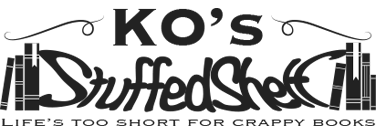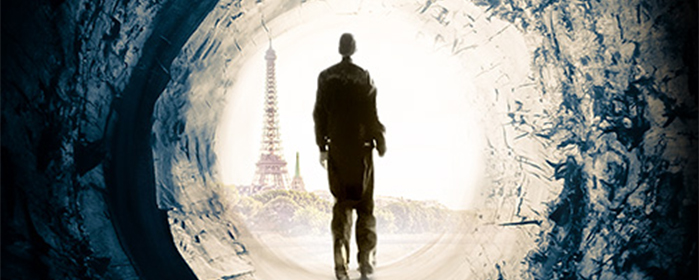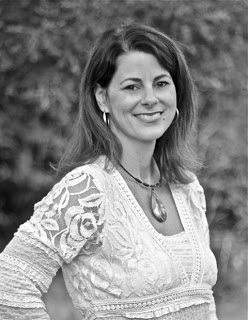Ixeos by Jennings Wright
The McClellands are enjoying a lazy summer vacation at the beach when they are lured from our world into Ixeos, an alternate Earth. Finding themselves lost in a maze of tunnels under Paris and surrounded by strangers, they discover that they have been brought to Ixeos for one purpose: to take the planet back from humanoid aliens who have claimed it. With the aid of the tunnels and a mysterious man named Landon, the teens travel the world seeking the key that will allow them to free Darian, the long-imprisoned rebel leader. But the aliens aren’t the only problem on Ixeos — the McClellands have to deal with brutal gangs, desperate junkies, and a world without power, where all the technology is owned by the aliens, and where most of the population has been killed or enslaved. The worst part? There’s no way home.
Born and raised in Florida, Jennings spent her early years reading anything she could get her hands on, when she wasn’t spending time in and on the water. She won a prize in the 6th grade for her science fiction stories.
Jennings attended the University of Tampa, graduating with a B.A. in Political Science, and almost enough credits for B.A.s in both English and History. She attended graduate school at the University of West Florida, studying Psychology. She spent time over the years doing various kinds of business writing, editing, and teaching writing, but mostly having and raising her family, homeschooling her children, owning and running a business with her husband, and starting a non-profit.
Thanks to a crazy idea called NaNoWriMo Jennings got back into creative writing in 2011 and hasn’t stopped since. She currently lives in North Carolina with her husband, also a business owner and writer, and two children, and travels extensively with her family, and her non-profit in Uganda.
Excerpt
CHAPTER ONE
The sky was almost white as the mid-summer heat and humidity beat down on the three kayaks. Crossing over narrow Taylor’s Creek from the little sand beach along Front Street, the trio had rowed their boats west towards Harkers Island, fighting the outgoing tide.
“I told you we should have come earlier,” Neahle called out, sweat running in rivulets down her sides under the life jacket. Her blonde hair was pulled back into a ponytail off her neck, but she could feel droplets forming on her scalp and running into her blue eyes.
“You were sleeping, too,” her brother Clay said over his shoulder, not bothering to look back. He knew she was hot and tired, not truly mad.
“We could stop and take a dip,” Marty said, swirling his hand in the cool water and wiping his face. “That little beach up there… We might even see some horses.” This last part was bribery, pure and simple. The wild horses of Carrot Island were among Neahle’s favorite things on the planet. So far they’d only seen one chestnut stallion, standing knee deep in water and pulling up fresh green shoots, far off over the marsh grass.
“Sounds good to me!” Neahle said and pointed. “That one there, by the big drain pipe?”
“Sure,” Marty said. He didn’t actually care which bit of mucky beach they picked; he would be happy to find some shade and drink about a gallon of Gatorade. Down from Virginia visiting his cousins, Marty wasn’t much of an outdoorsman. Beaufort was a tiny little town, and every day they dragged him out on a kayak, a stand-up paddleboard, a two-person sailboat, or a center console fishing boat. Clay had even tried to teach him to surf one day at Atlantic Beach, but after the leash broke and he chased the board down half a mile of sand while it bobbed in the waves, he gave up.
Leading the way, Clay beached the bright orange kayak, hopping out and unbuckling his life jacket. He grabbed the nose of Neahle’s boat, pulled her halfway up onto the sand, and helped her out. Marty nudged the boat onto dry ground and jumped out, realizing too late that the ground dropped steeply just past the waterline. In an instant, he was up to his neck in the briny waterway.
Laughing, Clay took a running leap and jumped in next to him, splashing the only part of him not already wet. Neahle dropped her pink life jacket on the ground and ran down the little slope, diving neatly into the cool water. She came up, ponytail hair dripping, cheeks pink, eyes laughing.
“This feels great!” she said, dipping her head back into the water. “The water’s still really nice from the cool June.”
Clay swam over and dunked her playfully. Marty quickly waded up onto the beach, not wanting to get caught up in the horseplay. Clay was over six feet tall, tan, buff, brown hair burnt blonde by the North Carolina sun, with pale blue eyes. He had a tribal tattoo over one shoulder and an abstract one the size of a quarter on the inside of his left wrist. In short, he was sickeningly perfect. Marty, on the other hand, was in a different checkout line when the genes were being sorted in the McClelland family. He was five foot nine — and a half, on a good day — with dirty blonde hair that didn’t do anything no matter how much gunk he used. He was thin in a scrawny sort of way and had only recently come out of a terrible bout of acne. So while Clay was friendly with a pretty good sense of humor and seemed genuinely happy to have him around, they didn’t exactly live on the same planet.
“What’s on the other side?” he asked when his cousins finally had all four ears above water level.
“I don’t know,” Neahle said. “I guess Shackleford Slough, and then Shackleford Banks beyond that.”
“Slough?” Marty asked. “What the heck is a slough?”
“I think technically it’s a swamp or something like that,” Clay said. “But here it’s the water between Carrot Island and Shackleford Banks, and it’s deep enough for boats. A lot of muck and sandbars come up at low tide, but it’s not a swamp.”
“Great…” Marty muttered. “But what’s on the other side of this dune, here on the island?”
Neahle shrugged. “Dunno. The island’s pretty thin at points, so it might go straight down to the water on the other side. I’ve never come ashore at this spot before.” She looked south, at a large sand dune covered with blanket flower and sea grass.
“Let’s check it out,” Clay said, pulling his kayak further up out of the water. “Tide’s going out, but if a boat comes by and disregards the no-wake zone, they could float away.”
Marty grabbed the plastic handle on the bow of his kayak and wrenched it forward,
watching Neahle slide hers effortlessly up the sand. “What do we do if that happens? Or if someone steals them while we’re gone?”
“No one’s gonna steal them!” Neahle said, laughing. “And if they float away, we swim after them. Or across to the mainland. It’s only like two hundred yards.” She picked up her life jacket and set it on the seat of the kayak, laying her two bladed paddle on top.
“All set?” she asked.
Marty was struggling to get his boat up the last couple of feet and had started sweating all over again. He thought Richmond was hot. This coastal humidity was horrendous. “Yep, just about,” he panted, dropping the handle and wiping his hands on his wet trunks. “No problem.” He copied his cousin with his life jacket and paddle, grabbed a bottle of Gatorade from the waterproof compartment in the stern, and took a long guzzle. Wiping his mouth, he nodded. “Let’s do it.”
** *
The three walked single file alongside the three-foot wide aluminum drain pipe that helped with erosion on the island. After twenty-five feet, the slope rose and the pipe was buried as it went through the dune. The ground was covered with orange and red blanket flower, mounds of deep green beach grass, and sand spurs. All three were wearing Sperry boat shoes, and the nylon laces and mesh were covered with the prickly little burrs.
“Crap!” Marty yelped as he tried to pick them off. He sucked on his finger where the sharp point had penetrated.
“Just leave ‘em,” Clay said. “The other grasses’ll knock them off. And if it doesn’t, they’ll get softer in the water and they’re easier to pick off.” He kept walking, leading the way up over the top of the dune.
“Whoa!” He came to a sudden halt; Neahle sidestepped to avoid running into him. She stopped, too, and shaded her eyes.
Marty, ten feet behind them, saw them stop and stare as he climbed the dune. “What? What is it?” he called, but neither answered. He broke into a jog. “Guys! What is it? A dead body? A shipwreck? What?” He reached the top and stared, standing next to Clay.
“Wow…” he breathed. “Didn’t expect that!”
Rather than running straight down to the water as they’d expected, the dune sloped gently to a pond. The pond, a hundred feet around, was a perfect circle, a crater in the middle of the tall sand dunes surrounding it. A dozen white egrets stalked the shallow water. Cat tails and reedy marsh-grass ringed the left edge. A pair of great blue herons stood imperiously on the far side. A flock of a dozen mallards paddled lazily in the middle. The male had a bright green collar and was leading his little band of females with soft quacks.
“Holy cow,” Neahle said softly. “It looks like a meteorite hit it or something.”
“Maybe it was a sink hole,” Clay suggested.
“That’s truly freaky,” Marty said. “It’s completely round. And completely hidden. We could be the first people to ever see it!”
Neahle turned and looked at him, laughing. “Marty, there’s a feeding station for the horses right there!” She pointed at a metal and wood slat structure used to hold bales of hay that was standing ten feet to their left.
Feeling heat creeping up his neck, Marty started moving down towards the pond, then stopped. “Hey… Weren’t there ducks in there?”
Scowling, Neahle shaded her eyes again. “Yeah, a flock of them. Where’d they go?”
“They probably just went in those reeds,” Clay said. He was watching a couple of center-console fishing boats cut across the water to the inlet.
“There’s no trail in the water,” Neahle countered.
“Okay, so they flew away,” he said.
“They didn’t — we were watching! And ducks aren’t exactly speedy.” “Obviously they didn’t just disappear!” her brother said, exasperated. “Here, we’ll
walk around the top. If they went in the reeds, we’ll see them. Will that make you feel better?”
She shrugged but followed after him, counter-clockwise along the top of the dune. Their movement caused the egrets to rise as one and fly away, no doubt to some other hidden pond where they could fish in peace.
“I saw those fly away,” Marty muttered to himself. He kept his eyes on the pond but still didn’t see any trace of the ducks. Glancing down at his shoes, he saw that, in this at least, his cousin had been right. Most of the sand spurs had come off.
They got to the far right side where they could see all of the reeds. There were no ducks. Glancing at Neahle and Marty, Clay scowled.
“Maybe they’re on the other side,” he said, and started walking again, not waiting for an answer. He didn’t care about the ducks but knew his sister would worry him to death until she found them.
He kept walking until they were on the far side of the dune. To their right was Shackleford Slough, and a mile or so away, Shackleford Banks. The water was criss- crossed with the foamy wakes of pleasure boats; a thirty-foot trawler was anchored halfway between the two islands. To the left were the pond and the reeds and nothing else. No ducks. No birds of any kind.
“That doesn’t make sense,” Marty said.
“No,” Clay said. “I’m sure we just missed them flying away. Or they’ve got nests down in those reeds and we just can’t see them.”
“Hey, look!” Neahle said, pointing to a spot about thirty feet below their feet. “There’s another drainage tunnel like the one that goes to Taylor’s Creek. I’ll bet the ducks went up in there and we missed it.”
Strangely relieved, Clay nodded. “That makes sense. It’s probably the only shade around here.”
“Let’s go see!” she said, starting down the hill towards the pond.
“Wait! Why do we need to see?” Clay yelled to her, but Marty had already started to follow, and Neahle didn’t turn back. “Crap,” he muttered as he followed after them.
** *
They had to wade in the pond to get to the mouth of the drain pipe; the bottom was soft muck that oozed into their shoes. Like the one on the other side of the island, this tunnel was about three feet wide and made of corrugated aluminum. Rusty metal struts held it level before it disappeared under the dune. In the glare of the sun, the interior of the tunnel looked pitch dark, and they couldn’t see more than a couple of feet inside.
“I don’t see them,” Clay said. “And I don’t care anymore.” The whole search for the ducks was putting him in a bad mood.
“Let’s go in,” Neahle said, clambering up onto the lip of the pipe.
“Do you have a flashlight?” Marty asked.
“No, but it’ll be lighter inside than you think. There’s plenty of light from the
opening, and the pipe comes out of the dune on the other side, just like on the creek side, so there will be light there. Once our eyes adjust, I’ll bet we can see clear through. Even if we don’t find the ducks, it’ll be pretty cool.” Her eyes were crinkled at the edges with excitement.
“What if there are… things… in there?” Marty asked.
“Like what?” Neahle asked. “The horses are too big. The only other things on the island are foxes, raccoons, snakes, birds, and they’ll be more scared of us than we are of them.”
“Snakes?” Marty said, turning pale. He hated snakes.
“Not poisonous ones,” she assured him.
“Great,” he said. He hated all snakes, and people always said animals were more
scared of us than we are of them. Just before the get attacked.
“For heaven’s sake,” Clay broke in, disgusted. “Let’s just do it and get it over with.” “Why are you so cranky all the sudden?” Neahle asked, eyebrows raised.
“I don’t care about the stupid ducks!” He looked at her face and at the excitement
now receding because of his reaction. Giving himself a mental head slap, he made amends. “But I guess it’s an adventure, and we’ll have a shortcut out to the Slough, which is pretty cool. You want me to go first?”
Smiling again, Neahle shook her head. “Nope, I got it. Y’all follow me!” Turning, she started off on her hands and knees.









